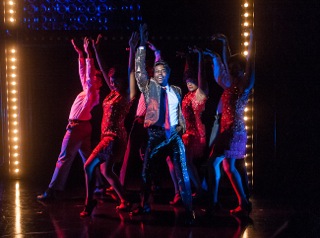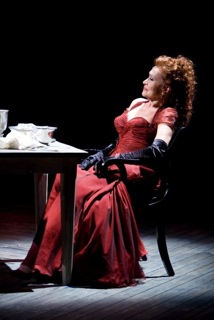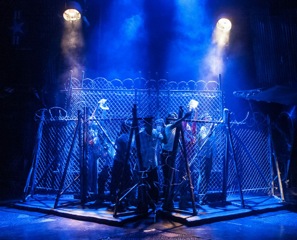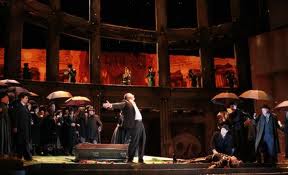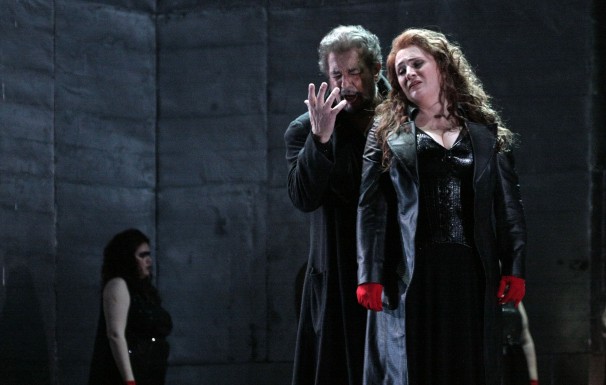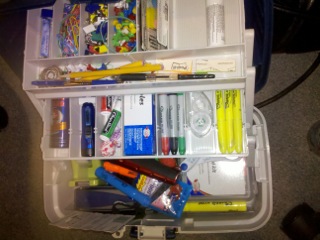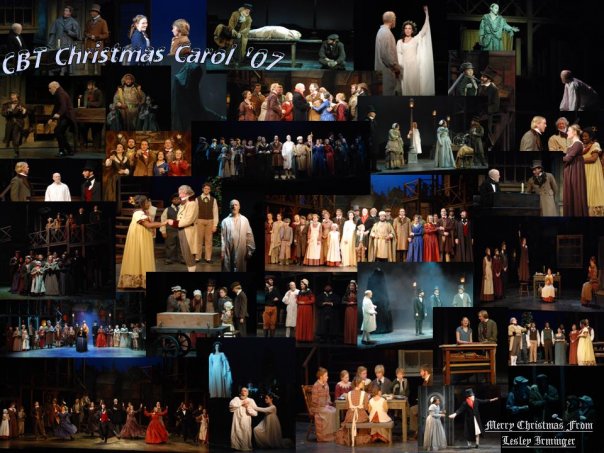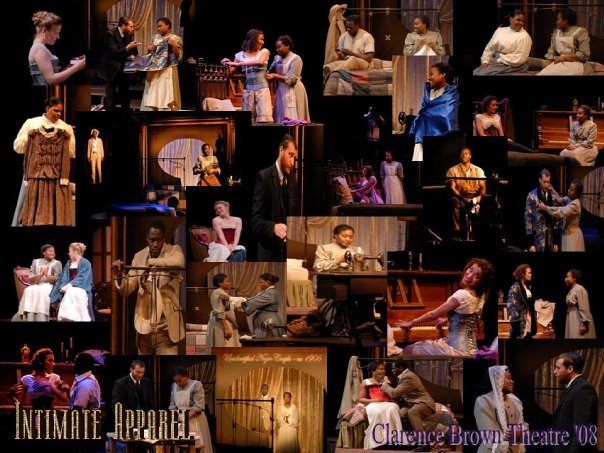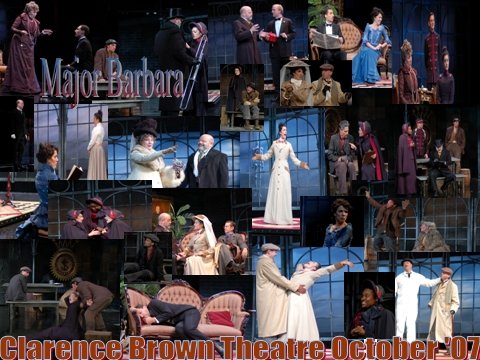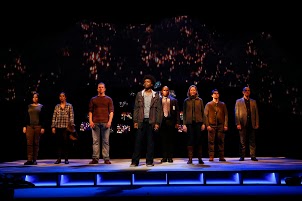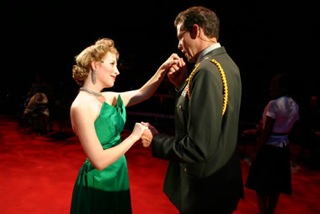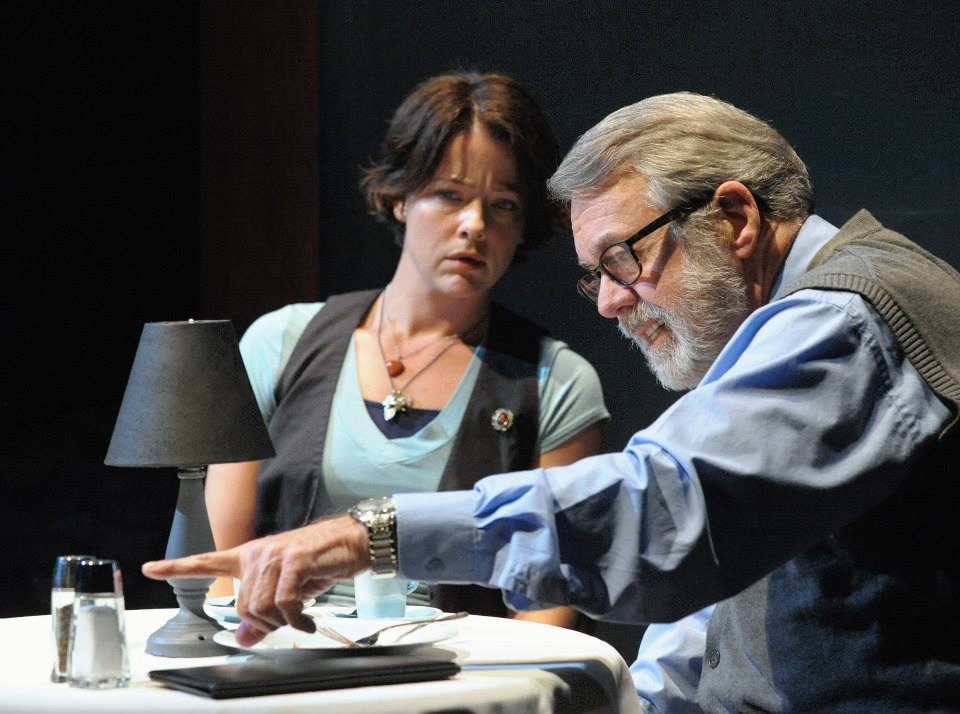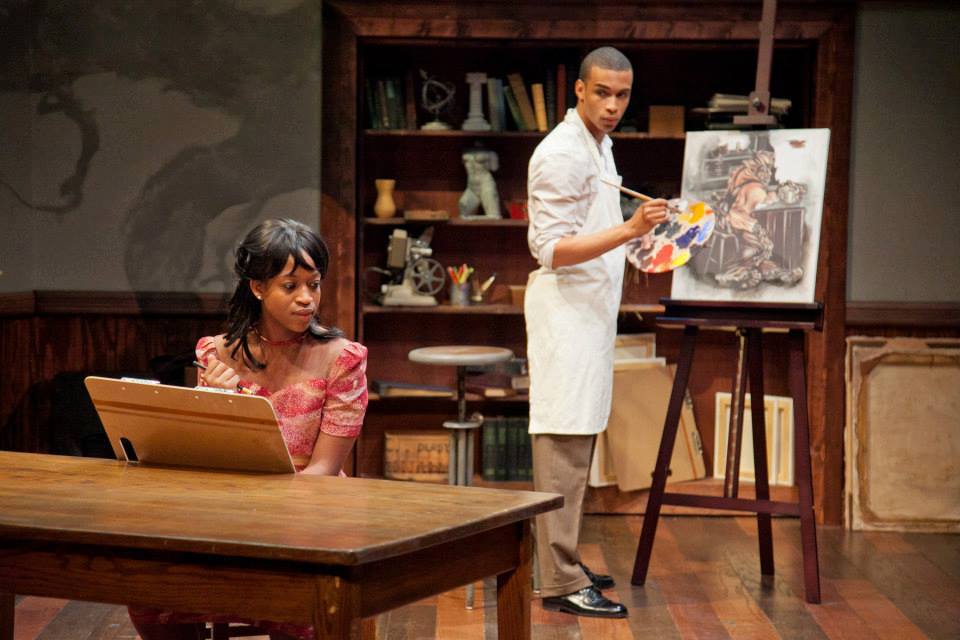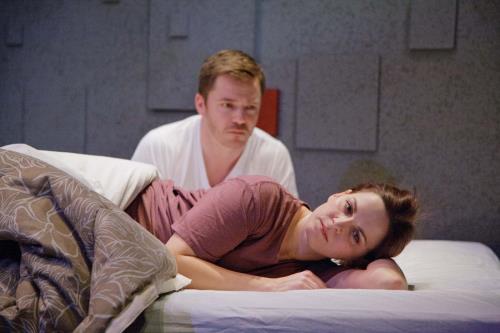|
JACQUELINE LAWTON: How long have you lived and worked as a stage manager in DC? What brought you here? Why have you stayed?
KERRY EPSTEIN: I’ve been stage manager for almost 15 years, 8 of them in the DC area. In 2005, my husband, Robbie Hayes, got a fantastic job opportunity at Georgetown University and we decided to make the move from Chicago to DC. I was in the process of sending my resume to the local theaters when I got a phone call from the director of one of Signature Theatre's upcoming shows. A mutual friend had told him I was moving to the area and he requested me as his stage manager. After the show closed, I was asked to stay on for the season and beyond. Incredible luck. I adore working on musicals and Signature does them very well. JL: What excites you most about being a stage manager? What do you feel your greatest challenges are? KE: Magic happens when I say “go.” Plus there is immense personal satisfaction in calling a cue at just the right second to perfectly coincide with a cymbal crash. Part of the job is to solve problems before they occur but there are times when the best thing for the show is to be a silent observer while others find their solution. That can be frustrating to wait when you want to leap in for a quick save. JL: What traits do you feel a successful Stage Manager should have to support the health and growth of a production? KE: A sincere respect for the script and artists. A sense of fun and flexibility. The peripheral vision of an owl. A slightly unhealthy fascination with checklists and spreadsheets. JL: Does your work as a Stage Manager pay the bills? If not, what other work do you do and how do you find a balance? KE: I am extremely lucky to have a full season at Signature not to mention a supportive partner so I am living the dream. It is pretty much “all theater all the time,” which can be a double-edged sword. Again, I’m very lucky, not complaining! JL: Looking at your body of work as a stage manager in this community, how conscious are you of selecting plays by women or people of color when deciding your season? KE: I am not involved in play selection - Signature chooses its season and I am offered specific shows/timeslots. It’s something I notice but isn’t ultimately a deciding factor. This season does contain two world premiers with book and lyrics by women: Crossing by Grace Barnes and Beaches by Iris Rainer Dart. JL: How do you feel the DC theatre community has addressed the issues of race and gender parity? How has this particular issue impacted you and your ability to work? KE: It’s an ongoing conversation. Just when you think progress has been made, you overhear a passing “women aren’t strong enough to be on a crew” comment that is just patently untrue. So you shake your head, move the scenery, and keep going. JL: DC audiences are ... KE: … very smart and supportive. Not afraid to share what they think, good or bad. JL: DC actors, designers and directors are .. KE: …adventurous, dedicated to their craft and each other. JL: DC critics are ... KE: …part of the show-audience-critic trifecta. Each one needs the other two. JL: What advice do you have for an up and coming DC based stage managers? KE: There are so many good companies in DC, all doing different kinds of work. Find the ones doing shows that match your artistic sensibilities and talents and make them your home. Also, never run out of pencils. JL: What's next for you as a stage manager? Where can we keep up with your work? KE: You can find me in the booth at Signature Theatre for Gypsy (through January 26), Beaches (February 18 - March 30), and Threepenny Opera (April 22 - June 30).
0 Comments
JACQUELINE LAWTON: How long have you lived and worked as a stage manager in DC? What brought you here? Why have you stayed?
BETH KRYNICKI: I have lived and worked in the DC area for 20 years. I moved here when I was offered a job as Assistant Stage Manager for Washington Opera. I’ve stayed as long as I have because of the great friends and colleagues I have been privileged to work with at both Washington National Opera and Wolf Trap Opera Company. Without their spirit and dedication I would have moved on long ago. JL: What excites you most about being a stage manager? What do you feel your greatest challenges are? BK: I love Piano Tech rehearsals. It’s the first time the cast meets the stage and all the elements start to come together; we rarely have enough time, there are deadlines with financial implications, anxiety is usually high, and when it all works because everyone pulled together and reached the common goal and knowing I had a hand in that, it is a very satisfying feeling. JL: What traits do you feel a successful Stage Manager should have to support the health and growth of a production? BK: A Stage Manager should be patient, calm, and organized, they should think ahead, plan for the worst, and listen. JL: Does your work as a Stage Manager pay the bills? If not, what other work do you do and how do you find a balance? BK: Yes, I have always been able to support myself as a stage manager. I once took a non-theatre job for a month between gigs, but that was just to try something different. JL: Looking at your body of work as a stage manager in this community, how conscious are you of selecting plays by women or people of color when deciding your season? BK: I don’t get to choose my shows, a company’s season is decided long before they offer me a contract, which could be for just one production, so I am just happy to be employed. Having said that, given my length of service at some companies they have been kind enough to ask my preferences in which case I’ll hope to be assigned to a show that is either unfamiliar to me or fits my travel dreams. However, I’d rather be employed than not. JL: How do you feel the DC theatre community has addressed the issues of race and gender parity? How has this particular issue impacted you and your ability to work? BK: As far as I know, I have never been negatively impacted by my race or gender. If I have benefited from them I wouldn’t know either, I prefer to think that my skills and my reputation speak for themselves. Opera, in general, tends to have racially diverse casts and the pool of local performers is a wonderful melting pot; in opera the musical score determines the genders for the roles, that’s hard to bend! JL: DC audiences are … BK: …loathe to turn off cell phones. JL: DC actors, designers and directors are .. BK: …some of the friendliest and most dedicated people to work with anywhere. JL: DC critics are … BK: …not doing enough to educate the audience about the piece and its value, or lack thereof. Anybody can write a product review, but critics are supposed to be the experts. Why is a certain piece important to be produced, or is it? What did it mean to the original audience? What was its purpose in being written, does this production uphold that, go beyond it or go in another direction entirely? And remember, it’s just an opera, not actual life and death. JL: What advice do you have for an up and coming DC based stage managers? BK: Enjoy what you are doing, otherwise the hours and personalities and rules will get to you. JL: What's next for you as a stage manager? Where can we keep up with your work? BK: My next stage management project is WNO’s “Magic Flute” this spring. Check the websites for Washington National Opera or Wolf Trap Opera Company, I am involved in body or in spirit with all of their productions. JACQUELINE LAWTON: How long have you lived and worked as a stage manager in DC? What brought you here? Why have you stayed?
KETA NEWBORN: More than half my life has been in DC. I have been a Stage Manager since 2005, but it wasn’t until 2007 – 2008 that things began to pick up for me, and that’s when I truly considered myself a SM. My family, friends, church is all here, this is where a lot of my roots are. JL: What excites you most about being a stage manager? What do you feel your greatest challenges are? KN: What excites me the most about being a stage manager is the creative process of seeing the show come alive from the moment I get the script; to the first reading with the actors; the directors overall vision of the play along with the designers; rehearsals; tech week; up to opening night and the run of the show. My greatest challenge, I feel is saying goodbye to everyone at the end of the each production run. JL: What traits do you feel a successful Stage Manager should have to support the health and growth of a production? KN: A successful SM should possess the following traits in order to maintain the health and growth of a production: 1 – Ability to maintain a professional attitude at all times; 2 – Remaining loyal and assuming responsibility for the entire run of the production (rehearsal and performance); 3 – Organized, Efficient, and Observant; 4 – Always ready for the unexpected, dependable, great energy, caring of other’s needs, reliable, a great communicator and listener. JL: Does your work as a Stage Manager pay the bills? If not, what other work do you do and how do you find a balance? KN: Being a Freelance SM is what pays the bills. I eat, sleep, and dream theatre gigs. I have been fortunate enough for the past 3 years to work the entire year non-stop SMs – overlapping gigs. I thank my Heavenly Father because it is only by His Grace & Mercy that is possible. JL: Looking at your body of work as a stage manager in this community, how conscious are you of selecting plays by women or people of color when deciding your season? KN: When I look at the body of work I have had the privilege to be apart of I cannot take any credit in deciding my season only being obedient to the Spirit of the Lord and allowing my steps to be ordered. JL: How do you feel the DC theatre community has addressed the issues of race and gender parity? How has this particular issue impacted you and your ability to work? KN: I feel that the DC theatre community is just now starting to address the issues of race and gender parity. These issues of race and gender have not impacted my ability to work. JL: DC audiences are ... KN: Invested in the arts, loyal, dedicated, and intelligent JL: DC actors, designers and directors are .. KN: Amazing, creative, lovable, fun and dedicated JL: DC critics are ... KN: Lackadaisical and complacent JL: What advice do you have for an up and coming DC based stage managers? KN: Network, Network, Network…Never leave home without a stack of business cards. Be willing to work as an ASM first. Always be willing to learn (teachable), and remain humble. JL: What's next for you as a stage manager? Where can we keep up with your work? KN: I am stage managing a production: The Flick by Annie Baker at Company One in Boston. JACQUELINE LAWTON: How long have you lived and worked as a stage manager in DC? What brought you here? Why have you stayed?
LESLEY IRMINGER: I moved to DC in ’08 for graduate school in Arts Management at George Mason University. Coming from a smaller arts area, Knoxville, TN I wanted to go somewhere that showcased the diversity of arts and somewhere I felt I could work outside of the stage management world but still SM when I wanted to. When I graduated in ’10 I was offered a job at the Center for the Arts at George Mason, so I stayed. Since then I’ve started stage managing more within the University. JL: What excites you most about being a stage manager? What do you feel your greatest challenges are? LI: I love the rush you get when everything comes together. To me stage management is NOT about the glory or the praise, it’s about the process and the final result. When I see a show come together and I know I helped make that happen it reminds me “why” we do it! I think for me the greatest challenge is balancing a full time job and still trying to stage manage on the side. My schedule does not offer a lot of time to SM, but I miss it when I’m not “doing it!” Another challenge is teaching stage managers and working within the university environment. You have so many “types” of students – getting them to understand “how theater” operates is exhilarating and challenging all in one! JL: What traits do you feel a successful Stage Manager should have to support the health and growth of a production? LI: Organization is always critical. Actors/Designers/Directors are artistic by nature – they should be allowed to think outside of the box – that is how art is created, but a good SM needs to be grounded and organized to help keep the chaos controlled! I also think you have to been patient, empathetic, stern, and parental all in one. Working with students this is especially important – I need to be able to relate to them and their lives as FT students, but I cannot allow them to walk all over the process. SM’s need to understand the concerns, issues, and circumstances of everything going on in a show – relate to them, but not let them take over the show. I think the best SM is one who can sit and just listen, then come up with a common ground solution. JL: Does your work as a Stage Manager pay the bills? If not, what other work do you do and how do you find a balance? LI: Not even close! I wish I could stage manage 24/7 but I do it now more for fun. I’m at a point in my life where stability is important and my FT job provides that. I SM for the Mason Opera/Music Department and sometimes venture out into other areas of DC to either SM or work as an arts manager. I also teach and mentor the SM students at Mason with the School of Theater. But my FT job is really what pays the bills. I like to joke that I have 4/5 jobs – but reality is it’s true and it’s the nature of working in the arts. JL: Looking at your body of work as a stage manager in this community, how conscious are you of selecting plays by women or people of color when deciding your season? LI: For me this is not something I really dive into. I take on gigs when I can. To me I think finding diverse work is important and I truly enjoy SMing shows that showcase women and the talent of local artists. JL: How do you feel the DC theatre community has addressed the issues of race and gender parity? How has this particular issue impacted you and your ability to work? LI: Compared to East Tennessee, where I am from I think DC does an excellent job. Between the Fringe Festival, Studio Theater, Arena, Signature, the University theatres, and Woolly I have been very impressed in the diversity of the area. I think most theaters in this area do try to think outside of the box and push boundaries! In this diverse area I feel this is important. This does not affect my work, but it does make me want to get out and see more theater and when I’m teaching I always try to focus on how theater brings a community together and sometimes asks the tough questions. JL: DC audiences are ... LI: Diverse and intelligent. I think the culture in DC drastically affects the arts and in a good way. People here ask the tough questions, they want to see good art, and they have eclectic tastes. This gives our theaters a lot to juggle, but it allows art to really form into something unique. JL: DC actors, designers and directors are .. LI: Hard working and dedicated. Its’ a rough area to work in but I see the theater professionals in this area and they don’t give up. They are dedicated to the craft and they fight for the arts in the area! JL: DC critics are ... LI: Again the Critics are never our favorite but I think the critics here are very diverse. I’ve never seen so many variety of reviews for a show. I think it showcases that our audience is diverse and I hate to say it a bad review does not mean I won’t go…in retrospect it challenges me to go and make my own opinion on a show. JL: What advice do you have for an up and coming DC based stage managers? LI: Go into this with passion, not the glory! SMing in general is hard work but the rewards are endless if you do it for the right reasons. If you are in DC, take advantage of all of the cattle calls and the diversity of theaters. Get out there and take gigs and don’t be afraid to push yourself or fight for your place as a SM in the area! JL: What's next for you as a stage manager? Where can we keep up with your work? LI: I am stage managing The Marriage of Figaro with Mason opera and Master Class with Lyric Opera Virginia. I don’t keep a web page or anything like that – the best way to keep up with my work is to follow what is going on at Mason! JACQUELINE LAWTON: How long have you lived and worked as a stage manager in DC? What brought you here? Why have you stayed?
KATE KILBANE: I’ve lived and worked in DC as a stage manager since 2000. Having studied political science, I moved here for a job at a non-profit in the solid waste management field. After I transitioned to theatre and became aware of the breadth and vibrancy of the DC theatre community, I’ve enjoyed living here. JL: What excites you most about being a stage manager? What do you feel your greatest challenges are? KK: Watching art and the creative process take place. Learning and knowing how to overcome obstacles whether they be in the rehearsal room, during tech or even after opening. I love witnessing moments that really capture what the playwright/director/designers intended. As a stage manager, it can be challenging to identify the weakest link of a production and find ways to improve it. JL: What traits do you feel a successful Stage Manager should have to support the health and growth of a production? KK: Strong organizational and communication skills, being adaptable to meet the needs of a production, efficiency, punctuality and professionalism. JL: Does your work as a Stage Manager pay the bills? If not, what other work do you do and how do you find a balance? KK: Yes, though I supplement my income between shows when possible with office work. After working in the office for a few weeks, I appreciate my work and love for theatre even more. It just comes naturally. JL: Looking at your body of work as a stage manager in this community, how conscious are you of selecting plays by women or people of color when deciding your season? KK: I have worked on numerous plays written by women and people of color during my career as well as plays directed by women and designed by people of color. I look for opportunities to work on productions that are interesting, challenging and stimulating, and if one by a woman or person of color comes along that meets that criteria and everything else falls into place, then I would take it. JL: How do you feel the DC theatre community has addressed the issues of race and gender parity? How has this particular issue impacted you and your ability to work? KK: I think DC theatres continue to make an effort to address it. By letting new voices and perspectives be heard, I think DC theatres can help their audiences grow in understanding themselves and the world around them. I am disheartened to see very talented minority actors having difficulty finding work, and if there was one area to be addressed, that would be a focus. JL: DC audiences are ... KK: very intelligent. JL: DC actors, designers and directors are .. KK: very talented and hard-working. JL: DC critics are ... KK: I don’t read every review but I think they are generally articulate with a strong point of view. JL: What advice do you have for an up and coming DC based stage manager? KK: Check out the theaters in town to get a sense of where you might like to work and could be a good fit. Network and send resumes around town. JL: What's next for you as a stage manager? Where can we keep up with your work? KK: I am currently the Assistant Stage Manager for Violet at Ford’s Theatre and next for me is stage managing The Admission at Theater J. I occasionally dabble on Facebook. JACQUELINE LAWTON: How long have you lived and worked as a stage manager in DC? What brought you here? Why have you stayed?
KAREN CURRIE: That’s a trick question for me because I was here for graduate school at American in the mid-1990s and then went to New York City for a while. I’ve been back in DC since 2005 and have been working as a stage manager that whole time. So I initially came for school. When I left I always knew I’d come back to DC eventually. It’s always felt like home to me with its great balance of big city/suburban life. JL: What excites you most about being a stage manager? What do you feel your greatest challenges are? KC: I love the process of watching something original come together – that moment when everything clicks and a piece becomes more than the sum of its parts. It’s magic and I’m so lucky to get to play a part in that. On the flip side the challenge are how to keep morale up when the magic isn’t happening. Or isn’t happening quite yet. JL: What traits do you feel a successful Stage Manager should have to support the health and growth of a production? KC: There are people who will disagree with me, but I feel like a successful stage manager is one who not only keeps up with the technical and logistical aspects of the job, but also can do everything possible to make everyone in the room supportive and comfortable enough to be at their best (including themselves!). JL: Does your work as a Stage Manager pay the bills? If not, what other work do you do and how do you find a balance? KC: Well, certainly not all of them. I’m very lucky in the part time office job that I have at a property management company in town. They are super supportive of my stage management work and let me come and go as needed to be available for productions. I also proof audio books occasionally and other similar computer based things that I can do from home at any time. The balance is the trickiest part of the whole thing. I am fiercely protective of my Mondays as a day off. When a production schedule doesn’t allow for that, I do everything I can to have at least one complete day off each week. A girl’s gotta have some time to do laundry. JL: Looking at your body of work as a stage manager in this community, how conscious are you of selecting plays by women or people of color when deciding your season? KC: I make choices based on a lot of different criteria: the people involved, the script, the theater company, the other people on the stage management staff. And while I like new challenges, it’s also nice to have a show or two that are like old home week where you get to work with people that you know and trust. I’m very lucky to have that family at Theater J, partly because they do make a strong effort to support women’s voices and voices of people of color. JL: How do you feel the DC theatre community has addressed the issues of race and gender parity? How has this particular issue impacted you and your ability to work? KC: I think that there are some companies that are working diligently to include productions by playwrights, directors, designers, stage managers, and actors of all types in their seasons - which I celebrate. And some that are not - which is disappointing. Could there be more? Certainly. But I also think that there are some companies whose missions better fit those opportunities than others. The ones whose mission makes this more difficult to achieve don't appear to be making many strides, but there's also an awful lot else that goes into picking a season. I have tremendous respect for those who do that as I know it is decisions that I wouldn't want to have to make every year! As for my ability to work, I have run across those times when the attitude is "a girl can't do that" or "we'll have to get a guy to do that" but I'm pretty aggressive at counteracting that notion. JL: DC audiences are ... KC: Engaged, thoughtful, loyal, excited, and oh so smart. JL: DC actors, designers and directors are .. KC: Inspiring, challenging, supportive, creative, and the best group of artists someone could ask to be around on a regular basis. I am amazed every day that I get to be in a rehearsal room or a dark theater with so many talented people. It’s cheesy to say, but I really do feel like I’m living the dream. JL: DC critics are ... KC: Are a part of the overal process and can certainly impact the work. I read reviews, because I feel like I need to know if an actor is responding to something that has been written. Part of my job is to maintain the integrity of the director's vision and intent. JL: What advice do you have for an up and coming DC based stage managers? KC: Go see everything you can. Get to know the people in town. If you are new to stage management or to town – contact a company you want to work with. Ask to shadow someone for a night. So much of the work that I have now is based on connections I’ve made from one show to another. An actor here introduces me to a director there who introduces me to a production manager there. And get to know other stage managers in town. We’re ALL looking for really good assistants and are very supportive of each other. I can’t tell you the number of times that I get an email or a call from someone who says “Do you know someone who can do A or B?” JL: What's next for you as a stage manager? Where can we keep up with your work? KC: I’m currently starting rehearsals for ORPHIE AND THE BOOK OF HEROES at the Kennedy Center Youth and Family Programs and in the Spring I'll be working on Freud's Last Session at Theater J. 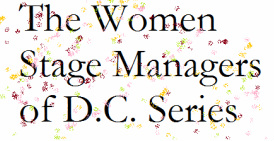 Welcome to the Women Stage Managers of D.C. Series! Over the next few days, you'll be introduced to a wonderful group of women working in the American Theatre as freelance and resident stage managers. You'll find these women in the rehearsal halls and technical booths of many of our finest local, regional, and national theatres. And I have the deepest respect and admiration for their tireless efforts and enormous contribution. Stage managers are essential to a successful production. Good stage managers are an absolute god send and should be cherished as the Holy Grail. While the Stage Manager duties vary from production to production, they are responsible for running rehearsals and the show. Here are some of the duties listed by Actors' Equity Association:
The sheer amount of work they must accomplish on top of the number of personalities they have to negotiate is quite simply extraordinary. Now, as with my previous series on Playwrights, Directors, Artistic Directors, Dramaturgs, and Theatre Critics, it is my hope that these interviews will serve others who are making their way as stage managers in the Nation's Capital, and beyond. And as all of you artistic directors plan your season, please consider reaching out one of these wonderful, talented, and hardworking women stage managers.  JENNIFER CARLSON Jenn Carlson is a graduate of Norwich University: the Military College of Vermont. She has stage managed for many different companies in the DC area including the John F. Kennedy Center for the Performing Arts, the Folger Theatre, Forum Theatre, the Hub Theatre, Woolly Mammoth Theatre Company, WSC Avant Bard, Theater Alliance, Theater J, Longacre Lea, Open Circle, Catalyst Theater Company, MetroStage, the Capital Fringe Festival, and the DC Queer Festival. Since arriving in DC in 2001 she has worked on over 75 professional theatrical productions in a plethora of roles. At her day job, Jenn is the IT Project Manager for the Institute of International Finance where she has also worked in Emerging Market Economics. In 2007 she coordinated the IIF/ASEAN Finance Minister’s Forum in Singapore which brought together nine of the ten ASEAN Finance Ministers in a high level series of presentations and discussions attended by a broad spectrum of the global financial community. Jenn now devotes her time to her burgeoning business, Prodigious Birth Services, as well as to her two incredible daughters, Moira and Ari.  KAREN CURRIE Karen Currie is a D.C. based Stage Manager. She has worked on several productions including After the Revolution, The Hampton Years, Woody Sez, Body Awareness, The Whipping Man, The Religion Thing, Imaging Madoff, The Moscows of Nantucket, The Odd Couple, The Four of Us, Lost in Yonkers, The Rise and Fall of Annie Hall, Honey Brown Eyes, 25 Questions for a Jewish Mother, Speed the Plow, and Either Or, as well as numerous readings at Theater J. In addition, Karen has worked locally on One Arm and the Tennessee Williams Centennial Festival, Georgetown University; Cymbeline, Shakespeare Theatre; Saturday Night, Sycamore Trees, Les Miserables, & The Happy Time, Signature Theatre; Seascape, Thicker Than Water, The Eccentricities of a Nightingale, Drama Under the Influence & The Autumn Garden, The American Century Theater; The Royal Hunt of the Sun, The Milk Train Doesn’t Stop Here Anymore, & Titus Andronicus, Washington Shakespeare Company. Other productions include Twelfth Night, The Last Session, and Hear My Song. Karen holds an M.A. in Arts Management from American University. Upcoming: the return of Woody Sez at Theater J and Orphie and the Book of Heroes at the Kennedy Center.  KERRY EPSTEIN Kerry Epstein is in her eighth season as Production Stage Manager at Signature Theatre. Selected credits include Miss Saigon, Company, Shakespeare's R&J, Dreamgirls, The Best Little Whorehouse in Texas, Brother Russia, Hairspray, The Hollow, Side By Side By Sondheim, Sunset Boulevard, Chess, First You Dream: The Music of Kander and Ebb, Les Misérables, The Visit, Kiss of the Spider Woman, The Studio, The Witches of Eastwick, Into the Woods, Assassins, Nevermore. She also serves as the stage management mentor for Signature in the Schools. DC area credits: The Kennedy Center, Arena Stage/Georgetown University. Regional credits: Lyric Theatre of Oklahoma, Steppenwolf Theatre, Goodman Theatre, Northlight Theatre, Rivendell Theatre Ensemble. Ms. Epstein received a Bachelor of Arts in both Dramatic Arts and History from Dickinson College.  TARYN FRIEND Taryn Friend is a D.C. based Stage Manager. She has worked on several productions including Ford’s Theatre: A Christmas Carol and Hello, Dolly! (Signature Theatre co-production), 1776, Liberty Smith, Little Shop of Horrors, One Destiny, A Christmas Carol (2005–08, 13-14), Meet John Doe, State of the Union, Shenandoah, Leading Ladies; Signature Theatre: Miss Saigon, Hairspray, The Visit, Kiss of the Spider Woman, Merrily We Roll Along, The Witches of Eastwick. Arena Stage: Oklahoma!; The Kennedy Center: Snow White, Rose Red (and Fred!), Barrio Grrrl!, Unleashed!; Woolly Mammoth Theatre: The Vibrator Play, or in the next room. EDUCATION: University of Mary Washington. UPCOMING: Ford’s Theatre: The 25th Annual Putnam County Spelling Bee.  MARLEY GIGGEY Marley is a DC area native who is currently the resident stage manager for Synetic Theater. Prior to returning to DC Marley stage managed Yellow Fever: the internment, and Global Sexxxism: unwrapped with The Conciliation Project in Richmond, VA, a social justice theatre company whose mission is to promote, through active and challenging dramatic work, open and honest dialogue about racism in America in order to repair its damaging legacy. Regionally she has worked at The New Harmony Theatre and The Heritage Theatre Festival where she stage managed several shows including Barefoot in the Park, Moonlight and Magnolias, My Fair Lady, and She Loves Me. Locally Marley has stage managed at Studio Theatre 2nd Stage (Mojo, Astro Boy and the God of Comics), First Stage (Fuddy Meers), and has worked as a production assistant at Signature Theatre (Xanadu, Dying City, Company). With Synetic Theater she has stage managed A Trip to the Moon, The Tempest, The Picture of Dorian Gray, and the upcoming Twelfth Night. She received her training at Virginia Commonwealth University where she earned a BFA in Stage Management.  CARY GILLETT Cary Gillett has stage managed more than 40 productions in the D.C. area, including work at the Round House Theatre, Shakespeare Theatre Company, and Olney Theatre Center. She is currently the production manager for the School of Theatre, Dance, and Performance Studies at the University of Maryland, where she teaches stage management. She has also served for the past five years as the production manager for the Helen Hayes Awards, which celebrates excellence in Washington, D.C. professional theater.  LESLEY C. IRMINGER Lesley Irminger received a B.A in Theater University of Tennessee, Knoxville; M.A.in Arts Management George Mason University. She currently serves as the Scheduling and Events Coordinator for the Center for the Arts and College of Visual and Performing Arts at George Mason where she manages all of the outside and university rentals for the college and serves as the primary scheduler for over 100 spaces. She is also a freelance stage manager in the Metropolitan DC area. Former credits include: Clarence Brown Theatre (Assassins, A Christmas Carol, Major Barbara, Intimate Apparel, As You Like It, Anna Karenina, Closer, A Lie in the Mind, Glass Menagerie, and All the Way Home), Heritage Repertory Theater (Enchanted April, My Way!, Rounding Third), Pellissippi State (The Kentucky Cycle Pt. 1, Widdershins), Auburn University (Anything Goes). Lesley was nominated twice for the Kennedy Center Theater Festival stage management fellowship for her work on shows at PSTCC. She has worked with directors from all over the United States including: Jed Diamond, Charles Miller, Paul Barnes, Joseph Haj, Steven Levine, Robert Chapel, Joseph Walsh, John Aler, and Katie Flye. Lesley currently serves as the Opera Department Production Stage Manager at Mason.She also worked with Theater of the First Amendment for three summers and served as the Marketing Director for The American Century Theater for two years.  KATE KILBANE Kate Kilbane has been a member of Actors’ Equity since 2004, and has worked steadily as a stage manager and an assistant stage manager at both large and small theatres in town, including Ford’s Theatre, The Kennedy Center, Woolly Mammoth Theatre Company, Theater J, SCENA Theatre, MetroStage, Open Circle Theatre and African Continuum Theatre Company. She developed management skills at her college radio station that have transferred to her current career, serving as the station’s general manager her senior year. She began her journey toward a professional theater career in Washington D.C., first working as a sound board operator. She quickly moved into stage management roles, learning on the job while working at a non-profit in the solid waste management field. Kate became a production assistant at The Shakespeare Theatre Company, where for two seasons she continued to develop necessary skills with the help of her mentors, Brandon Prendergast and Shari Silberglitt (Moxley). Some of her most memorable productions include: The Oedipus Plays, Follies, Ragtime, Arias with a Twist, Antony & Cleopatra, Evita, and The Screwtape Letters. 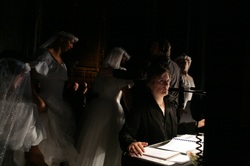 BETH KRYNICKI Beth has been with Washington National Opera for 20 years and was the Principal Stage Manager for 15 of those years. She has spent a total of 15 seasons with Wolf Trap Opera Company and 12 seasons with Spoleto Festival USA. Other companies she has worked with include The Kennedy Center for the Performing Arts, the Bolshoi Ballet, Seattle Opera, The Dallas Opera, Orlando Opera, Kentucky Opera, National Symphony Orchestra, and Very Special Arts, among others. Beth has enjoyed heading masterclasses with both the University of Maryland and the University of Iowa, and leads resume workshops for anyone who will listen. She speaks five languages, which has been useful in the opera world, and she is an avid traveler. Photo by Karin Cooper. 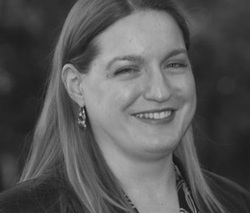 LYNN KRYNICKI Lynn is currently in her 14th consecutive season at Washington National Opera at the John F. Kennedy Center for the Performing Arts and this Summer will enjoy her 11th consecutive season as Opera Stage Manager for Bard SummerScape at the Fisher Center for the Performing Arts at Bard College, NY. Locally her opera Stage Managing credits include Der Fliegende Holländer, Siegfried, Elektra, Werther, Anna Bolena, Madama Butterfly, and La forza del destino. Other notable stage management credits include the Latino Inaugural 2013 at the Kennedy Center, the first non-Russian Premier of Taneyev’s Oresteia at Bard SummerScape, North American Premier of The Picture of Dorian Gray at Florentine Opera, Carmen performed in Van Andel Arena for Opera Grand Rapids, and the World Premier of Gabriel’s Daughter at Central City Opera. Among the other companies for which she has worked are Seattle Opera, Central City Opera, Nashville Opera, Opera Grand Rapids, Milwaukee Ballet, Chautauqua Opera, Pine Mountain Music Festival, Des Moines Metro Opera, and Madison Opera. 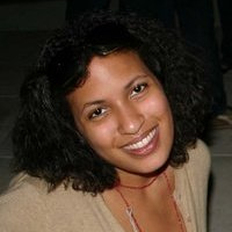 OUIDA MAEDEL Since 2011, Ouida has worked as the Partnerships and Production Manager at Dance Exchange, where her first major project was to produce Cassie Meador’s 500-mile walk and community engagement tour to a coal mine in West Virginia during How To Lose a Mountain‘s development phase. Passionate about the use of the performing arts for social change, Ouida has performed with a traveling theatre troupe in Zambia, and has worked in conflict transformation and public health in Ghana and in the U.S., activating theatre and creative movement for education and civil society engagement. Ouida is a former member of the acting companies of Mir Productions and of the 13th Street Repertory Theatre in New York, where she also fulfilled company management duties. As a Stage Manager in Residence at the Lee Strasberg Theatre and Film Institute, she led mentorship programs for students enrolled in production practicums. Ouida has performed in, or stage managed a multitude of productions in DC and in New York, she holds a BA from Sarah Lawrence College, an MA in International Communication and Arts Management from American University, where she was a teaching and research fellow, and she currently serves as a Helen Hayes Award Judge.  KRISTY MATERO Kristy Matero has been a DC based Stage Manager for the last 7 years. Local credits include The Kennedy Center: Joe Turner’s Come and Gone, Seven Guitars, Jitney; Washington National Opera: Anna Bolena; Signature Theatre: God of Carnage, Sweeney Todd, And The Curtain Rises; Woolly Mammoth Theatre: Appropriate, The Convert, The K of D, Full Circle, Antebellum, Boom, Maria/Stuart, How Theatre Failed America, If You See Something Say Something (with Mike Daisey), Hell Meets Henry Halfway (with Pig Iron Theatre Company), Too Much Light Makes The Baby Go Blind (with The Neofuturists); Scena Theatre: The Importance of Being Earnest; Theatre Alliance: Ambition Facing West. Other companies around the country include The Spoleto Festival USA, Actors Theatre of Louisville, The Hudson Valley Shakespeare Festival and Milwaukee Rep.  KETA NEWBORN Keta Newborn is an ambitious, tenderhearted, hard working, determined and compassionate poet, self-publishing author, motivational speaker, freelance stage manager and mother of two teenage girls. As a freelancer, Keta has been involved at many levels within the theatrical world, holding several titles including SM, ASM, Venue Manager, Production Assistant, and Light/Sound Board Operator. Keta has worked for numerous theatres and production companies including: 1st Stage, Studio Theatre, Capital Fringe, Imagination Stage, H Street Playhouse, THEARC, Serenity Players, Restoration Stage, The Soul Factory and Lincoln Theatre to name a few. Keta wishes to thank her Father above for the opportunity to be used as one of His vessels, working to bring His work of art into the hearts of many. 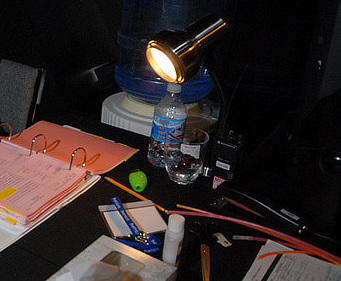 © Flickr user Rob Lee © Flickr user Rob Lee “Perhaps, therefore, ideal stage managers not only need to be calm and meticulous professionals who know their craft, but masochists who feel pride in rising above impossible odds.” Peter Hall The first to arrive and the last to leave, Stage Managers are responsible for the seamless execution of a production. While working to keep up morale; ensuring that everyone arrives on time; and keeping a steady and endless supply of pencils, highlighters, pain killers, cough drops and coffee, they are in charge of a whole host of things too enumerable to list here. The D.C. Theatre Community has the great fortune of being home to a number of smart, talented, and hard-working Stage Managers. Over time, as theatre grew more and more sophisticated, individual tasks became more specialized. Prior to the 17th century, not only were actors and playwrights responsible for writing, directing and appearing in the play, but also for managing all aspects of everything else. Many theatre historians tell us that the term, Stage Manager, first appeared in use in the 18th Century and that the duties were formalized in the 19th century. If you’re interested in becoming a stage manager, Daniel Ionazzi’s The Stage Management Handbook is an excellent resource. It covers every step of the Stage Management process including pre-production, rehearsal, and performance as well as organizational structure and the delicate and highly nuanced skill of managing people. I’m honored to present the Women Stage Managers of D.C. Series to you. Several months ago, I reached out to about 30 women in the D.C. area to see if they would like to take part. As can be expected, many of them had too much on their plates, but they were excited to hear from and support their colleagues. In my next post, I'll introduce you to the women being featured and share their stories with you over the course of the next few days. I hope you'll enjoy learning about their lives, careers and experiences as much as I have.  I've always had a good ear for music and can pluck out a melody on the piano by ear. When I was in junior high, I joined the school band. At first, I didn't want to, because they didn't offer the violin. I had loved the violin ever since watching In the Good Old Summertime with Judy Garland and Van Johnson. That was also when I decided that I loved red dresses, men who read poetry, and wanted to be a carefree, independent, happy-go-lucky woman who winked at men right back. At present, I don't own any red dresses, but I've loved men who not only read, but also wrote poetry, and I dare say, I've winked back at my fair share of men and am not ashamed to admit that I've initiated a few winks of my own! In the end, I joined the band, because of my sister. She joined to have something fun to do and to spend time with all of her friends. She's very smart my sister. She played the baritone beautifully. I decided to play the trumpet. I was determined to play with the zest of Louis Armstrong, the power of Dizzy Gillespie and the tone of Wynton Marsalis. Zest, I had in abundance, but owing to asthma, my lungs were weak. More often than not, I had to forego playing the solo during marching band, but owned it during concert season. And had excellent tone ... or so I was told. I still have the trumpet. I take it out every now again to play the scales and try to keep up my embouchure. I also have a violin that my parents bought me for 8th grade graduation. Sadly, I can't play a single note. Still, my passion for music never waned. In fact, I create a different soundtrack for each of my plays and every character has a song for various moments in their journey. I listen to classical music more than anything else. So, you can imagine my delight when my dear friend, Kim Peter Kovack, told me about the opportunity to write the script for the National Symphony Orchestra's In Your Neighborhood program. I knew immediately that I wanted to do it and am so appreciative for the opportunity. I'm working on the script now, and it's so much fun. As a lover of travel and adventure, I'm enjoying being transported to Austria, Denmark, Finland, Mexico, Brazil, France and across the United States through this beautiful music. I can hardly wait to share this program with all of you in January and hope that you can attend! Here's more information about the program: The 2014 NSO in Your Neighborhood is the NSO’s third neighborhood specific intensive performance project in DC. Last year, over the course of seven days, more than 30 events took place in schools, churches, community centers, restaurants, and bars. Key performances took place at the restored Howard Theatre, Lincoln Theatre, and Howard University’s Cramton Auditorium, recognizing the 100th anniversary of the University’s School of Music. The National Symphony Orchestra will make Capitol Hill and H Street, NE, the focus of its free community engagement activities in January 2014. Between January 7 and 13, members of the NSO will break into small ensembles to perform chamber music and educational activities as requested by 20 community organizations. The events will include three orchestral concerts, one at Atlas Performing Arts Center and two at Union Station. The opening concert will take place at the Atlas Performing Arts Center on January 8. Built in 1938, in the area then known as Swampoodle, this recently renovated art-deco cinema has been key to the revitalization of the Near Northeast portion of DC. Assistant Conductor Ankush Kumar Bahl will lead that performance and the two at Union Station on Saturday, January 11th, which I'm writing and celebrated television news anchor Andrea Roane will be narrating. NSO AT UNION STATION Saturday, January 11th at 3 P.M. & 7 P.M. Union Station, East Hall, 50 Massachusetts Ace.,NE Led by NSO Assistant Conductor Ankush Kumar Bahl, written by Jacqueline E. Lawton and featuring WUSA Channel 9's Andrea Roane as host, the National Symphony performs two full "train-themed" concerts at Union Station. Program to include:
Free. Seating is limited and on a first-come, first-served basis. Click here for the full program and enjoy this video! We appreciate your support!
In Your Neighborhood provides free events in schools, community centers, churches, businesses, and performing arts venues throughout the area.
Become part of this important project by supporting the National Symphony Orchestra's first crowdfunding campaign. Why crowdfunding? In Your Neighborhood can only provide free live music and education programs through the generosity of community leaders, local businesses, and our neighbors....and we still need your help! When you donate, you'll be sharing the power of classical music with your neighbors. In Your Neighborhood is a program developed and promoted in collaboration with the community. The schedule of events will reflect requests gathered from the community itself, with the assistance of partnering organizations. And you'll be recognized as a donor and kept updated by email as new exciting programs are added. And most of all...we'll look forward to seeing you in January! 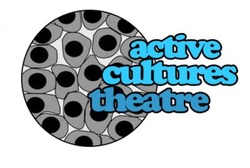 Tomorrow, Friday, December 13th at 7:30pm, please join Hilary Kacser, Laura Zam, and Mary Resing at High Tea Stories--a performance of true stories of honesty, generosity, quality, responsibility and community. "Laura Zam has written a wonderful piece that really captures moments in the lives of women striving to help the world," said Mary Resing, Artistic Director of Active Cultures. "It is very fun and touching. Hilary Kacser and Laura are delightful as they rapid shift from character to character, showing a wide range of the Jewish women of Baltimore." High Tea Stories by Laura Zam directed by Mary Resing performed by Laura Zam and Hilary Kacser Synopsis When Chana, a character from the Book of Samuel, faces conflict and self-doubt, she turns to a group of modern day women in Baltimore for help. A modern parable, High Tea Stories celebrates the role of authenticity, community and generosity in our lives. Friday, Dec 13, 7:30 pm Old Parish House 4711 Knox Road College Park, MD 20740 Click here for directions. Commissioned by The Associated of Baltimore and produced by Active Cultures. Please support our free events with your donation at the door. About the Artists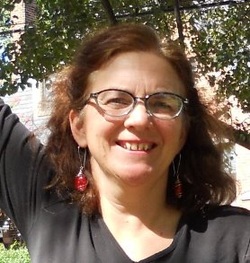 Mary Resing is a playwright, director, dramaturg & producer and the founder of Active Cultures Theatre. In 2012, the Maryland State Arts Council recognized her with an Individual Artist Award in Playwriting for her signed/spoken musical Visible Language. She has served on panels for the TCG, CIES and The Rockefeller Foundation. A proud alumna of Michigan-Ann Arbor, NYU, and Spring Hill College, Dr. Resing was a 2005-2006 US Fulbright Scholar to Armenia. In 2005, she also received an Offstage Award from the League of Washington Theatres for her body of dramaturgical work at Woolly Mammoth. With Tim McKeown, she is co-owner of the successful startup ResingMcKeown Unlimited. 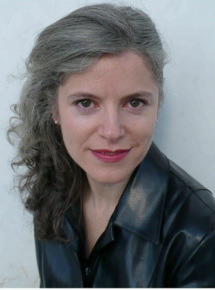 Hilary Kacser is a long time DC actor,who has performed regionally and internationally, on stage and screen. She has produced and performed in every Capital Fringe Festival since the Festival’s inauguration eight years ago. Her original work has been awarded multiple DC Commission on the Arts and Humanties grants. Hilary just returned from Austin,Texas and Miami, Florida, where she performed her touring solo show, “DisordR, the Play,” in which Pakrat Patty the Hoarder comes out of the Clutter Closet (2reprises.blogspot.com).  Laura Zam is a writer/performer specializing in solo plays. MARRIED SEX, commissioned by Theater J (Semi-Finalist O’Neill), at NY Fringe and Off-Broadway (United Solo). Other NY performances: Dixon Place, Public Theater, EST and others. COLLATERALLY DAMAGED tours nationally, including Kennedy Center, Woolly Mammoth, Shakespeare Theatre, universities, schools, conferences, and museums. International: four Prague productions. Awards: Tennessee Williams Fellowship, Artist Fellowship (DCCAH), Amiri Barka Literary Prize, and others. Publications: six book anthologies, personal essays and articles. As an arts-educator, Laura has worked with post-trauma populations internationally, including teens from Mid-East, wounded soldiers, and sexual trauma survivors. M.F.A from Brown (Playwriting). LauraZam.com. |
My BlogI'm a playwright, dramaturg, and teaching artist. It is here where you'll find my queries and musings on life, theater and the world. My posts advocate for diversity, inclusion, and equity in the American Theatre and updates on my own work. Please enjoy!
Categories
All
Archives
June 2020
Reading List
|
